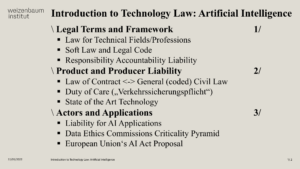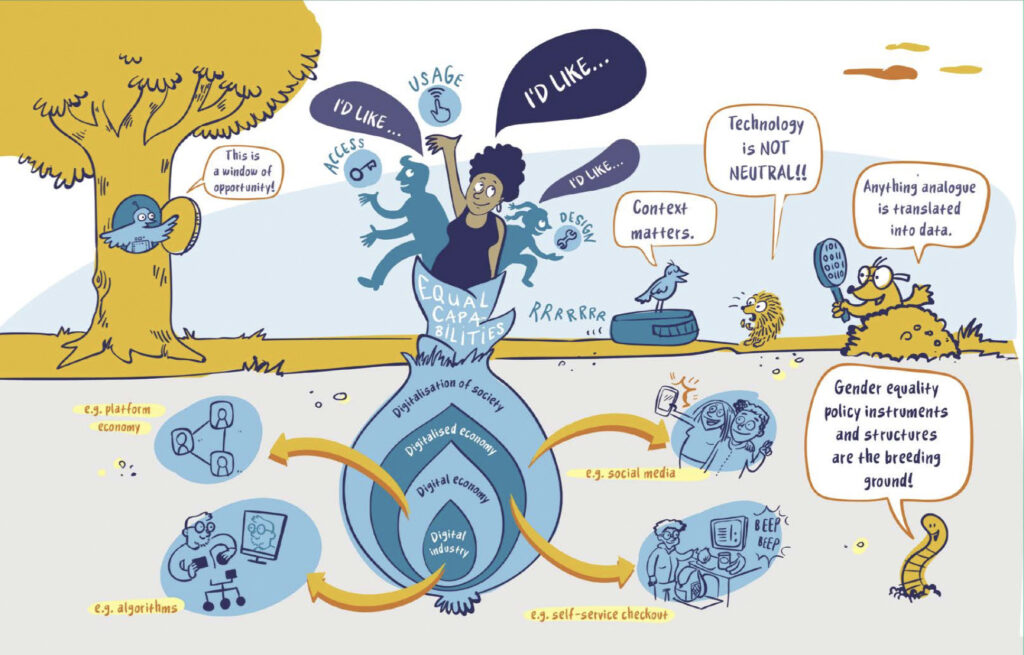The increasing impact of computer science in everyday life is irrefutable. That being said, present and future technologies need to be scrutinized from an ethical standpoint. Prof. Dr. Bettina Berendt and her students tackle this task in the lecture „Ethics, Data Science and Networked AI“. On January 11th and 12th, Hans-Christian Gräfe and Dr. Stefan Ullrich contributed with two guest lectures.
Data Science and Ethics
The ubiquitous role of computer and data science bears significant societal consequences. This calls for computer scientists to make morally adequate decisions when building applications and developing systems. In order to understand and be aware of the morally relevant aspects in data science and AI technologies, concepts of academic ethics provide an essential prerequisite. Prof. Dr. Berendt’s lecture links the two disciplines and examines their interplay. Besides exploring schools of ethics and argumentation theory, Prof. Dr. Berendt and her students compare the role of ethics with other regulatory systems. Subsequently, they evaluate AI technologies already in place through an ethical lens. Ultimately, they consider the debate as to whether machines themselves can be ethical agents.
AI and Technology Law

Hans presented on the most prominent form of regulation in his “Introduction to Technology Law with a focus on AI”: the legal system. First off, he addressed the hierarchy of the legal framework and analyzed how ethical notions influence the law and its enforcement – directly or as soft law. In more detail, Hans and the students examined the different areas of law composing what is called “technology law”. Besides IT-law, copyright and competition law, the field of product liability in contract law provides fundamental rules for the regulation of technologies. Hence, they dealt with the duty of care and the “state of the art” standard that producers need to comply with. This led them to consider contentious questions around liability for flawed AI systems. Lastly, they took an outlook on how the EU plans to regulate AI technologies in its AI Act Proposal.
Gender Bias in Data

Stefan’s guest lecture on »Data and ML Ethics: Gender Biases« dealt with phenomena such as stereotypes, biases and discrimination in machine learning systems. After analysing the origin of bias in data collections, Stefan and the students looked at real world examples of AI products with the potential to discriminate. They also discussed how progression in this area is impeded by a lack of high-quality datasets or entire data gaps. Finally, they discussed if and how the recommendations for action of the Third Gender Equality report of the German Federal Government can shape digitalisation in a gender-equitable way.
- TU Berlin, Lecture by Prof. Dr. Berendt: Ethics, Data Science and Networked AI